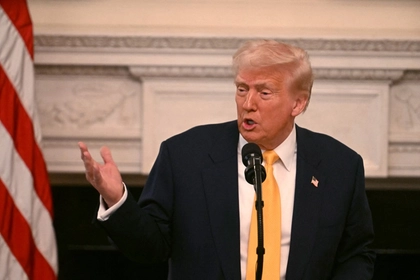Journalists from all over the world, who are currently swarming over Ukraine to report on the “two years of war”, will soon return to their countries with a sense of accomplishment. But the war will continue, and the state of the front line will show whether military aid is getting through and making a difference.
Without it, the front line will gradually be pushed towards the rear, which will set in motion mechanisms for the mandatory evacuation of the civilian population from towns and villages which Russian artillery will be able to reach.
JOIN US ON TELEGRAM
Follow our coverage of the war on the @Kyivpost_official.
What will Ukrainian soldiers do if the West continues to delay the supply of military aid? What will they put their faith in? Will they put their hope in God?
Service of Chaplains
Support for the spirit – for faith in victory – has become important for soldiers at the front. Each unit has an officer trained to deal with mild mental health issues – stress, depression, or aggression. These officers do this work to the best of their abilities, but soldiers have more confidence in chaplains who are not officers and who fight alongside them if necessary.
Chaplains appeared throughout the Ukrainian army only in October 2022. They are present on the staffing list of military units. They receive a salary and take part in both combat operations and military exercises in the rear.
Over the past year and a half, many chaplains have been injured and several have died. Currently, about 750 chaplains serve on the front line and in rear units. These are mostly young, physically fit people. On the front line, they often have to put down their Bible and take up their guns. At this point, they simply become ordinary soldiers.

Trump Says Putin Has Power to Take Ukraine ‘If He Wants,’ Zelensky ‘Has No Cards’
Were it not for the war, these chaplains would be preaching peace and love to communities, but military service influences their thoughts and feelings and their state of mind. Sometimes this leads them to make unconventional decisions that might be criticized by other priests.
Power of tattoos
Last year, chaplain Sergiy Budovy had the image of Jesus Christ tattooed on his arm “so that even my body glorifies the Lord,” he explained.
This news began a discussion about whether it was appropriate for members of the clergy to have tattoos. The ancient Coptic Christians, who made secret tattoos on their wrists to recognize one other, were remembered, as were a variety of sacred texts that mention the subject.
But the theological discussion was quietened when chaplain Budovy said that he started receiving his tattoo in a dugout, at the front, in the Donetsk region. The tattoo remained unfinished for a long time because the tattoo artist, also a soldier who was also serving in the dugout, suffered severe concussions. Another tattoo artist at the front finished the work, allowing Budovy to show off photos on social media.
At the front, tattoos proclaiming the patriotism or political views of their owners have long been considered a sign of courage. Dozens of Ukrainian soldiers and volunteers have been killed in captivity by the Russians precisely because of their pro-Ukrainian tattoos. Ukrainian military personnel, returning home on leave, sometimes go to tattoo parlors to get a tattoo that reflects their thoughts and beliefs, often hardened by war.
Remembrance
In St. Petersburg, meanwhile, after the death of Alexei Navalny in one of Russia’s harshest prisons, only one priest – Father Grigory Mikhnov-Vaitenko – expressed a desire to hold a memorial service for him. He announced it on social media and was very soon detained by police upon leaving his home. From the police station, he was taken to hospital, having suffered a stroke.
In Ukraine, Navalny’s death did not cause much of a reaction. Ukrainians do not believe in the possibility of a “good Russia”. Navalny was considered anti-Ukrainian because of his stance on annexed Crimea, saying that it would not be returned to Ukraine. Ukrainians cannot forgive him for comparing Crimea to a sandwich. “What is Crimea, a sausage sandwich, to be handed back and forth?” he said in October 2014, eight months after the annexation.
He was also slow to recognize Russia’s war crimes against Ukraine, but in later statements he acknowledged the need for Russia to lose this war and for Ukraine to return to its 1991 borders.
He understood that if there is no loss for Russia, then there will be no future for the country either. There will only be the Russia of the past, the same Russia before which the whole world now cowers, the Russia which killed Navalny, Anna Politkovskaya, Boris Nemtsov and many, many others.
Soon, the anniversary of the start of the full-scale war will disappear from the media, but Navalny’s death will maintain the presence in the news as long as his body is not returned to his family for burial. And as long as people remember him, they will also remember Ukraine, since both are the victims of the same terrorist regime.
You can also highlight the text and press Ctrl + Enter











